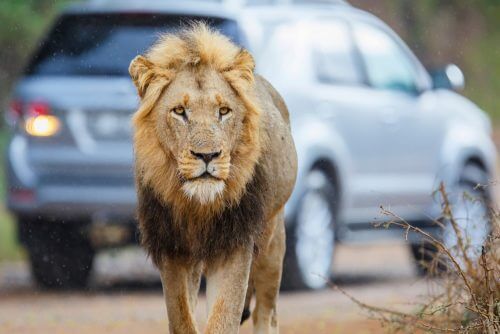Governments can stop the killing by banning the importation of animal parts and stuffed animals. It is hoped that the heroes who will not be able to hang the symbols of their masculinity on the walls will avoid the expense involved and thus prevent the carnage

The killing of wild animals in the name of protecting the environment and nature will be stopped immediately, as the nefarious hunter has no scientific or traditional justification. Killing for sport or pleasure is a personal choice that has no moral justification.
About three years ago, Cecil, a famous lion who was lured out of the reserve in Zimbabwe and hunted by an American dentist, was murdered. Recently, a lion named Skye was hunted (Skye was lured out of the Kruger reserve.
As in the case of Cecil, Skye was also a dominant male in a well-known, recognized and controlled group, and again the hunter is a rich American. Nature lovers around the world have followed the two famous cases which make up a tiny percentage of all the murders for sport of wild animals.
In Africa, lions, elephants, tigers, buffaloes and more are hunted. Bears, moose, wolves and others are also hunted in other parts of the world. In exchange for the hunter, the "heroes" pay huge sums (which are supposed to be used to improve the conditions of the local population and preserve nature). But it turns out that there is a wide gap between the declared goals of the sports organizers and the places where the money goes.
One of the most well-known examples in the Nebazi market is: an international club called Safari Club International which is active mainly in Africa. Club members purchase the right to murder with the help of an intermediary (globe-trotting trophy hunters) who takes care of licensing, taxidermy and delivery of the stuffed animal to the "hero's" home where he can hang the symbol of his masculinity and be proud of his actions.
Cecil's murder ignited the discussion about the hunting trade, which caused anger and opposition from a wide audience, so much so that bodies from the hunting industry asked for the public's forgiveness and tried to show the environmental and social benefits of the despicable occupation. Therefore Skye's murder has no excuses or apologies.
The information about sport hunting causes professional hunters and their clients to be increasingly under criticism and despite the industry's attempts to buy the public's sympathy, the demand to stop the despicable sport is increasing.
One of the claims in favor of the hunter is that with the considerable sums that are paid, the level of conservation of nature can be improved, but it turns out that the hunter harms the main income from the natural environment. The hunter harms nature tourism, the hunter harms the possibilities for tourists and visitors to watch wild animals. Tourists avoid visiting areas where there is a hunter. Considering the fact that nature tourism is one of the most important sources of income in Africa, harming wild animals is an economic harm.
https://www.youtube.com/watch?time_continue=34&v=cuEJEYWfC7o
Lions crossing a river in Kruger National Park. From the reserve website
Between the years 2005-2014, American hunters killed more than 5,000 lions. In that decade, hunters brought home more than a million stuffed animals of 1,200 species. The members of the despised club compete to see who can kill more animals and who has more stuffed animals. They organize events where they celebrate, congratulate and give out prizes. Is all this to protect nature?
If the members of the club really have an interest in protecting nature, they will use their money to protect animals without asking for a license to kill animals in return. If they have the nebazi need to hunt the defenseless - they will come and organize competitions in which they hunt each other. The sport of hunting is not a sport but murder, a crime against nature.
One of the reasons for the continued killing is the way in which governments in the US mislead the authorities in Africa as if the hunter is necessary for the management of the hunted population, this is of course nonsense since if there is a need for management or even thinning, it is important to do it in the right ways that will benefit the wild animal population and not through killing for a fee.
Governments can stop the killing by banning the importation of animal parts and stuffed animals. It is to be hoped that the heroes who will not be able to hang the symbols of their masculinity on the walls will avoid the expense involved and thus prevent the murder.
Indeed, conservation groups in the US demand that the president immediately ban the importation of stuffed animals. In order to prevent the continuation of the murder, the Tourists Against Trophy Hunting (TATH) organization works, which recruits journalists, tour operators and tourists. The organization aims to reach millions of viewers and listeners who will raise a voice against the Nivazi hunter.
A spokesperson for the United Nations World Tourism Organization (UN World Tourism Organization) said that the role of environmental tourism is to raise its voice in favor of morality, to show its distaste for harming wild animals. There is also a call to identify the killers of lions, elephants, bears and wolves by name and thus put another nail in the coffin of the sport hunting organizations.
Flagship species struggle to survive under human pressure on habitats. If there is a chance for future generations to live in an environment where elephants, giraffes, lions and tigers also live, a moral approach to the entire natural environment is necessary.
https://www.youtube.com/watch?v=64VQ9wWu6l8
Five encounters with lions in the Kruger Reserve. From YouTube
More of the topic in Hayadan:

One response
Willing and ready to work for nature